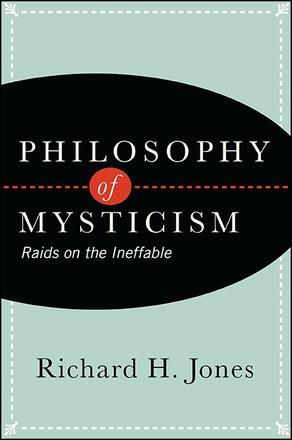
Philosophy of Mysticism
Raids on the Ineffable
Alternative formats available from:
A comprehensive exploration of the philosophical issues raised by mysticism.
Description
This work is a comprehensive study of the philosophical issues raised by mysticism. Mystics claim to experience reality in a way not available in normal life, a claim which makes this phenomenon interesting from a philosophical perspective. Richard H. Jones's inquiry focuses on the skeleton of beliefs and values of mysticism: knowledge claims made about the nature of reality and of human beings; value claims about what is significant and what is ethical; and mystical goals and ways of life. Jones engages language, epistemology, metaphysics, science, and the philosophy of mind. Methodological issues in the study of mysticism are also addressed. Examples of mystical experience are drawn chiefly from Buddhism and Advaita Vedanta, but also from Christianity, Judaism, Islam, and Daoism.
Richard H. Jones is the author of several books, including Mysticism Examined: Philosophical Inquiries into Mysticism, also published by SUNY Press.
Reviews
"…this book presents an interesting overview of the philosophical issues concerning mysticism, and is an important contribution to the philosophy of mysticism. " — H-Net Reviews (H-Judiac)
". ..superb … one of the very best books out on the philosophy of mysticism. " — Reading Religion
"This is a significant extension of the seminal work by Walter Stace, Mysticism and Philosophy. That work has stimulated much literature, all of which Jones manages to review here. He critically extends Stace's universal core and embeds it in a sophisticated discussion of the extent, range, and metaphysical implications of mysticism. " — Ralph W. Hood, Jr. , coauthor of The Psychology of Religion: An Empirical Approach